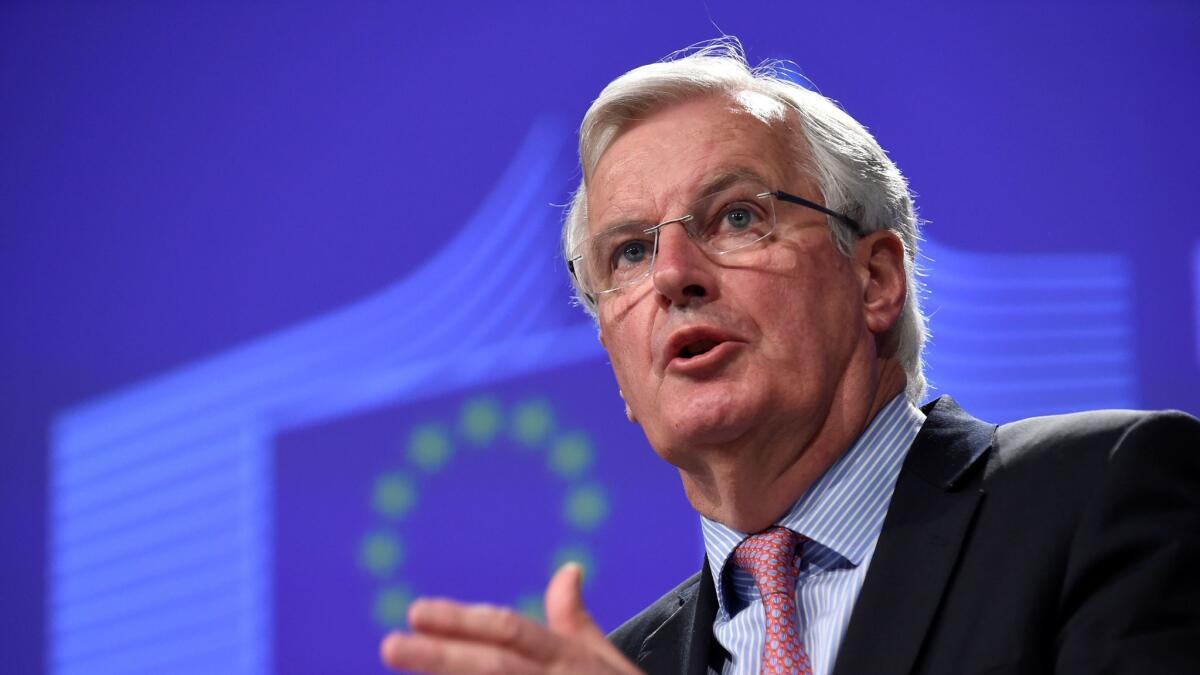EU Brexit chief warns ‘time is short’ for negotiations

- Share via
Reporting from BRUSSELS — The European Union’s point-man on Brexit urged Britain to work tirelessly to conclude negotiations on leaving the bloc, warning Wednesday that time is running out to seal a deal by 2019.
Unveiling his mandate for the talks on Britain’s departure, Michel Barnier said that in the coming months he will focus on tackling three issues: the future of some five million citizens affected by the move; London’s financial debts, which could climb to as much as $109 billion according to reports; and border issues with neighboring Ireland.
It’s the first time a member has ever left the EU, so these negotiations are taking the Europeans into uncharted waters. The complicated process, combined with snap elections in Britain, has ratcheted tensions between Prime Minister Theresa May’s government and the 27 nations that will remain in the EU.
Barnier, a former French government minister, told reporters in Brussels that “the UK must put a great deal of energy and effort” into the talks, which can only start in earnest once a new government is formed in London. He suggested that the parties will have some 16 months to negotiate, leaving time for respective parliaments to endorse any accord.
“Time is short, very short. Days are going by,” he said.
Barnier insisted that he is not hostile to Britain and that the talks are not a form of punishment, saying that “we have to settle the account, not more not less.”
He underlined that Britain and its EU partners had together agreed the bloc’s long-term budget, running from 2014 to 2020, and that Britain must pay up its share of contributions.
“Engagements were undertaken and they have to be honored. It’s a question of responsibility,” he said.
Barnier did not specify how much Britain should pay, but the British government minister charged with overseeing the withdrawal rejected the notion that Britain will be forced to pay a reported bill of 100 billion euros.
David Davis told television station ITV that the EU was not able to arbitrarily set a figure and that the final amount paid will come out of negotiations.
It had been widely discussed that the bill would be 60 billion euros, but the Financial Times reported Wednesday that it had gone up amid added demands by the EU.
Davis said Britain would meet its international obligations but that “we will not be paying 100 billion.”
He also dismissed reports the EU could bar May from Brexit discussions at future heads of state and government meetings.
Under the negotiating mandate, EU states would have to approve progress on immediate exit issues before Barnier can start negotiating the outline of the bloc’s future relations with Britain after it leaves.
More to Read
Sign up for Essential California
The most important California stories and recommendations in your inbox every morning.
You may occasionally receive promotional content from the Los Angeles Times.












